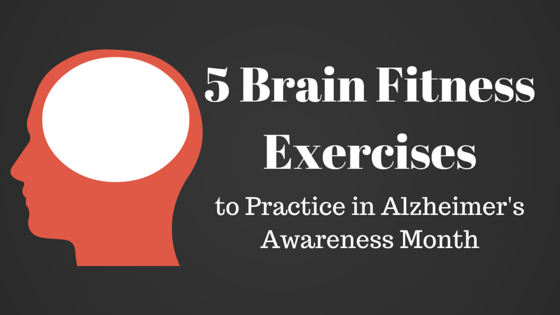
As the number of older adults with Alzheimer’s increases each year, there’s no guarantee that you will stay sharp long into your golden years, but there is increasing evidence that you can exercise some control over your brain fitness by being good to your body. It is never too late to embrace healthy habits, practice both mental and physical stretching, and indulge your curiosity. As experts in diverse fields of aging, mental health and physical well-being attest, the relationship between body and brain is closer than you may have imagined. Even though it may not be possible to "think yourself well," it is certainly true that if you abuse your body, your brain will also suffer.
While it is no longer a given that brain power and physical prowess diminish with each advancing year, the "use it or lose it" dictum may still be valid. It is vital, say researchers, that we make a concerted effort, as we add more candles on each birthday cake, to exercise old skills and develop new ones.
Step up Your Brain Fitness Game
November is National Alzheimer’s Disease Awareness Month. And there will be a lot of discussion about how to forestall the onset and slow the progression of dementia and Alzheimer's Disease throughout November.
Some of them are lifestyle changes: adding more fish to your diet, getting enough quality sleep, enjoying fresh air and sunshine, and exercising regularly. Other activities are good for the soul as well as the brain and the body—taking up a new hobby, gardening, participating in music and cultural events, and spending time with are all enjoyable activities that also stimulate the senses.
If you’re looking for practical steps, here are five simple ways to boost brain fitness:
- Learn to use another hand for simple activities. Practice varied tasks with the hand you don't normally favor. Toss a ball, stir cake batter, comb your hair, or brush your teeth with the "other" hand. Try buttoning a shirt, eating or practicing penmanship with the "wrong" hand. It's hard, but as you gain more competence using your non-dominant hand for simple tasks, you will also stimulate the formation of new brain pathways and neurons.
- Give your senses a workout. Sit on a park bench, or in a busy mall. Look straight ahead, but be aware of what you see on the periphery of your line of sight. Make a list, and determine if, over time, your observational talent improves. You might be surprised at your expanded awareness. A crucial component of memory, focus and recall ability, the neurotransmitter acetylcholine is nearly absent in Alzheimer's patients, and this exercise stimulates the part of your brain that produces this chemical.
- Memorize a song or a poem. If you know the tune, but can't sing along without stumbling over the words, write them down until you know them by heart. Close the book of poetry, then stand up and recite it from memory. It will feel good! You'll gain a sense of accomplishment, be able to "perform" for friends, and increase plasticity and memory function to your brain.
- Get out the violin, the harmonica or the drums. If you once played an instrument, but haven’t practiced in a while, take it up once more—for your own enjoyment, as a way to increase dexterity, and in an effort to improve brain function. The sensory interrelationships add depth to brain fitness.
- Eat chocolate! Chocolate encourages your brain to produce dopamine—and that's good news for memory and learning. Dark chocolate, with a low percentage of added sugar, is best; it also contains healthful antioxidants that are good for both brain and body.
For other brain games and helpful tips, check out some of the ideas offered by AARP.












